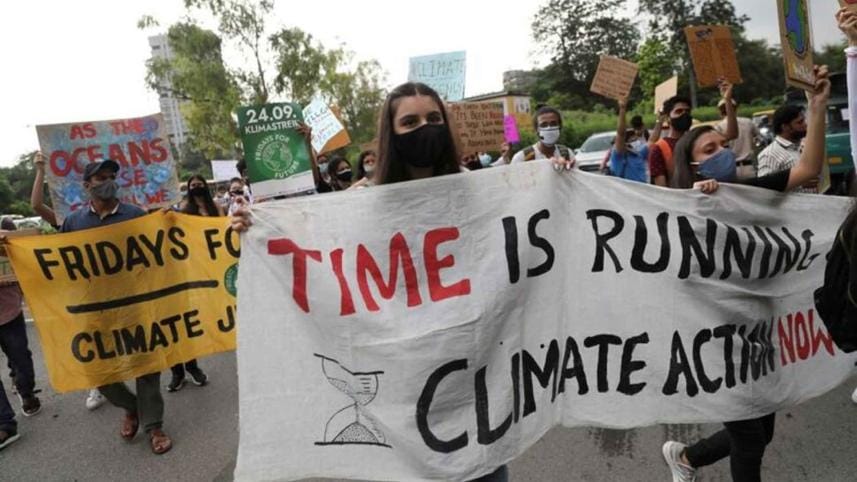100 billion to tackle climate change is a trillion too short

A decade ago, developed countries pledged to provide developing countries with USD 100 billion each year, from 2020 onwards. The year 2020 came and went and the USD 100 billion was not delivered even in 2021. At COP26 in Glasgow in November 2021, the developed countries apologised for their failure to keep their promise and pledged again to fulfil it.
In the meantime, the 6th Assessment Report (AR6) of the Intergovernmental Panel on Climate Change (IPCC) has reported that the impacts of human-induced climate change have already become a reality and the world needs to step up its investment for both mitigation and adaptation, while also addressing loss and damage.
Hence, the amount that has been pledged so far is completely inadequate to tackle the climate disaster, as trillions of dollars are required to allow the world to develop in a climate-resilient manner.
The Covid pandemic and the current war in Ukraine have only added to the climate crisis and highlighted the need to redirect future investments towards a more sustainable and resilient world.
The first redirection needs to be for global investment in renewable energy, and abandoning the use of fossil fuel. The war in Ukraine has highlighted the dangers of Europe's dependence on fossil fuel from Russia, and countries in Western Europe are fast tracking their plans to invest more in renewable energy. This is a welcome development even if it is happening later than it should have.
This redirection of investment from fossil fuels to renewable energy needs to be replicated in every country in the world, as quickly as possible.
The Bangladesh government has wisely cancelled plans for some coal-based power plants and is ramping up investment in solar energy, which should be expanded rapidly. It would also be worth exploring the employment of offshore wind in the Bay of Bengal, where the newest wind turbines can be installed and operated safely even during times of cyclonic wind speeds. It will require initially investing in the feasibility study on such offshore wind energy and, if it seems feasible, to bring in billions of dollars worth of investments from global green investment funds, which Bangladesh has yet to tap into.
One example for us to learn from is the successful launch of a Green Sukuk bond by Indonesia, which raised more than USD 1 billion for green investments in the country.
Besides investment in mitigation and energy, the world also needs to increase investment in adaptation to prepare for the enhanced level of adverse impacts of climate change that are now inevitable for all countries, the poor and the rich. This will require national governments everywhere to enhance investment at national and local levels, and for developed countries to finally deliver on their pledges of financial support to developing countries.
Finally, we also have to invest in addressing the loss and damage that will inevitably occur due to human-induced climate change in every country. It is important that the Glasgow Dialogue on Finance for Loss and Damage, agreed upon at COP26, results in the creation of a new facility for financing loss and damage at COP27 in November this year.
It is fair to say that both government and civil society actors in Bangladesh are well aware of these needs, and some investments are already happening at public and private sector levels. The need of the hour is to rapidly enhance the levels of investment in Bangladesh and look to tapping into the global green investment funds, which we have not yet been able to access.
This means looking beyond climate change funds such as the Green Climate Fund (GCF) or the Adaptation Fund (AF), and into the trillions of dollars now available in the global green funds.
Dr Saleemul Huq is director of the International Centre for Climate Change and Development (ICCCAD) at Independent University, Bangladesh (IUB).




 For all latest news, follow The Daily Star's Google News channel.
For all latest news, follow The Daily Star's Google News channel.
Comments